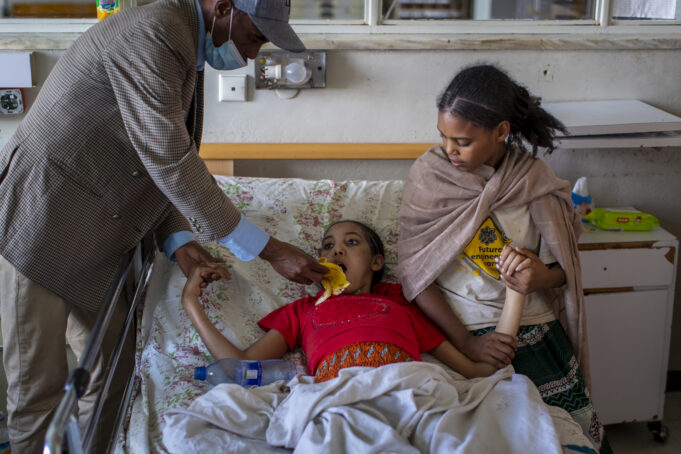(GIN)—The disastrous war in the Horn of Africa is being guided secretly by the U.S., according to briefings reported by the World Peace Foundation (WPF), a philanthropic foundation for research into peace processes affiliated with Massachusetts-based Fletcher School of Law.
The year-long conflict in Ethiopia pitting the Tigray People’s Liberation Front and its allies against the Ethiopian government has caused thousands, perhaps tens of thousands, of battlefield casualties.
In the humanitarian catastrophe caused by the conflict, 5.2 million people in Ethiopia’s north have faced hunger and lacked basic supplies for a year as the government sought to strangle the Tigray region.
In a commentary titled “How the International Community is Betraying Tigray—and its Principles,” the thinking of key international figures regarding the war against Tigray led by the Federal Government of Ethiopia and the State of Eritrea is detailed.
With the African Union unable to take effective action to end one of the bloodiest wars in the world today, Western officials began holding meetings secretly in Djibouti and in the Seychelles, writes Alex de Waal, executive secretary of the WPF.
Two top officials attended the latest meeting, arriving in a U.S. Air Force aircraft operating on behalf of the U.S. State Department.
Gen. Tsadkan Gebretensae, a former chief of the Ethiopian military, now a strategist for the Tigrayans, told The New York Times in a phone interview that “the fighting is intense, and the casualties are immense.”
On Sept. 20, U.S. Special Envoy Mike Hammer held a press briefing and took questions from journalists. His performance left much to desire, opined de Waal. There were no condolences to Ethiopians, especially Tigrayans, for their bereavements, losses and fears. He failed to convey the gravity of the war in which the survival of the Tigrayan people is in question and the future of Ethiopia and the Horn of Africa will be decided.
Ethiopia could revert to normal, Hammer hinted, including its strategic partnership with the U.S., if the Ethiopian government were given the right encouragement to do the right thing.
He took the Tigrayans for granted, protested de Waal, assuming they would be ready to surrender in the negotiating room what they have refused to concede on the battlefield.
Most of all, the U.S. envoy’s speech raised questions about who is setting policy towards Ethiopia in the Horn of Africa and what is the strategy beyond trying to manage the crisis and hoping for the best.













